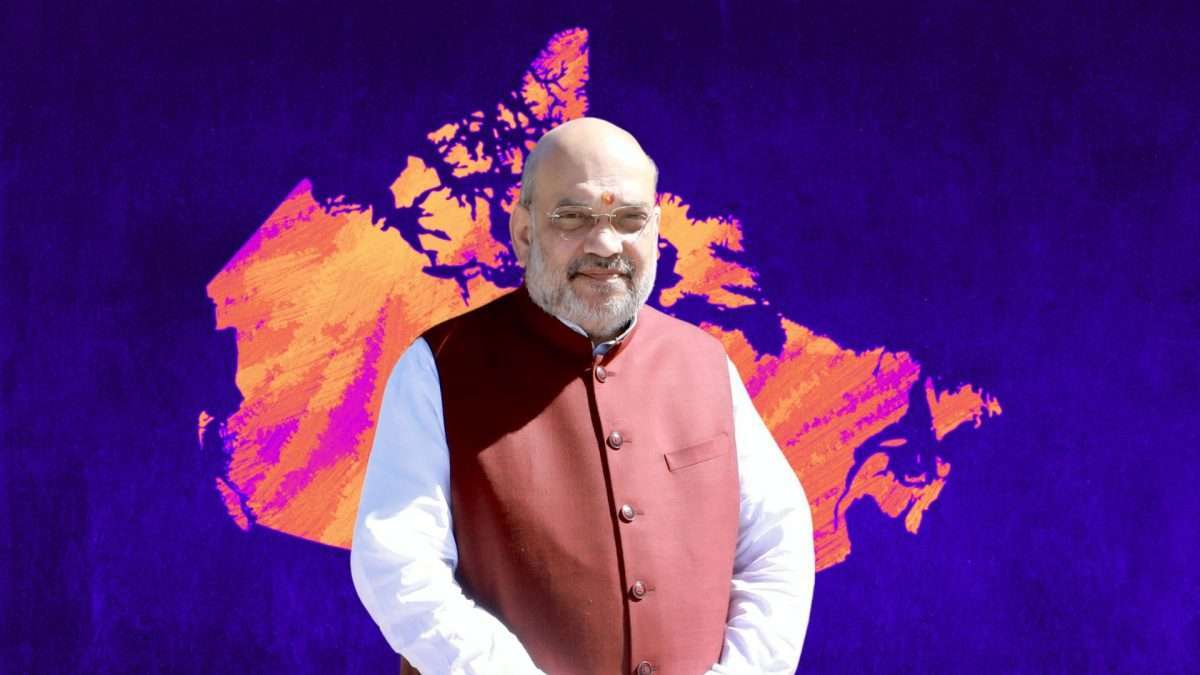One name stands out in the new revelations from Canada’s investigation into India’s campaign to assassinate Sikh dissidents on Canadian soil: Amit Shah.
Gerry Shih and Greg Miller of the Washington Post report that Shah, who as home minister serves as India’s top civilian security official, authorized the campaign to surveil and attack supporters of the Khalistan movement in Canada.
The Khalistan movement seeks to establish a separate homeland for the Sikh religious community out of parts of northwestern India. It has renewed to some degree over the past decade of Hindu nationalist rule in India. While violent in the past, it has in recent years used politics — including referendum votes held outside India in countries like Canada — to achieve its aims, still riling India’s rulers.
This week, Canada and India expelled each other’s diplomats amid revelations that Ottawa has discovered a much broader campaign to coerce and kill Canadians on Canadian soil. On Monday, Canadian Prime Minister Justin Trudeau blasted India for engaging in what he described as “criminal” acts of “murder” and extortion.
Why the Revelations About Shah Matter
The Post, citing unnamed Canadian officials, reports that intercepted communications between Indian diplomats included language they believe referred to Shah as one of the senior officials in New Delhi who authorized the Canada killing campaign.
This appears to be the first time Shah has been publicly implicated in India’s assassination campaign in the West. Previous reporting has named Ajit Doval and other senior figures in the Research and Analysis Wing (RAW), India’s top external spy agency.
Revelations of Shah’s involvement have tremendous political and geopolitical implications because of the power he possesses now and may hold in the future.
Shah’s role in India today is far greater than his formal position. He is India’s second-most powerful man, serving as the right-hand of Prime Minister Narendra Modi — a longstanding relationship that dates back decades. Shah is Modi’s consigliere, bagman, and hitman all rolled into one. He’s been described as someone to whom Modi could “delegate all the dirty work.”
Shah has long been implicated in orchestrating extrajudicial killings within his own country. In 2010, he was arrested and charged with murder and extortion related to the killing of Sohrabuddin Sheikh, an underworld figure. Indian authorities described Shah as head of an extortion syndicate. India is now exporting this model of killing and extortion overseas to target its political foes in the West.
What makes the revelations about Shah even more significant is that he is one of the top contenders to succeed Modi when his term ends in 2029.
Shah, who faces potential sanctions and even criminal charges by Canada, could become India’s next prime minister. He’s not the only violent extremist who could succeed Modi. Yogi Adityanath, the vigilante group founder and Hindu priest who rules India’s largest state, has ranked as the public’s favorite to take Modi’s place if and when he bows out of politics.
Modi himself has been implicated by British authorities and others in the anti-Muslim pogroms of 2002. He was subject to an unannounced travel ban by the United States, but Shah could become the first Indian leader to be formally sanctioned or criminally charged by a Western democracy.
Indian security officials have been implicated in another assassination plot in the United States. But officials in the White House are less inclined to hold India to account due to its perceived importance in countering China.
Learn more about India’s global assassination campaign in my podcast with investigative journalist Murtaza Hussain:
Arif Rafiq is the editor of Globely News. Rafiq has contributed commentary and analysis on global issues for publications such as Foreign Affairs, Foreign Policy, the New Republic, the New York Times, and POLITICO Magazine.
He has appeared on numerous broadcast outlets, including Al Jazeera English, the BBC World Service, CNN International, and National Public Radio.



